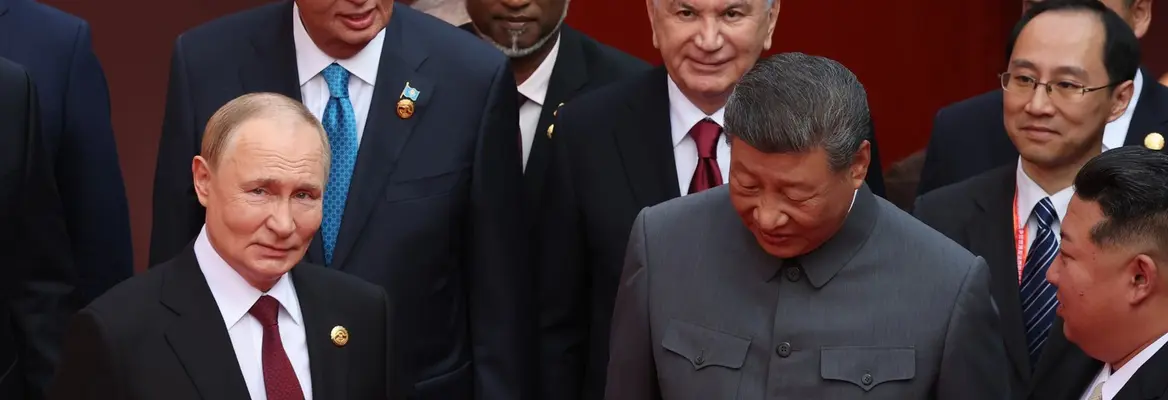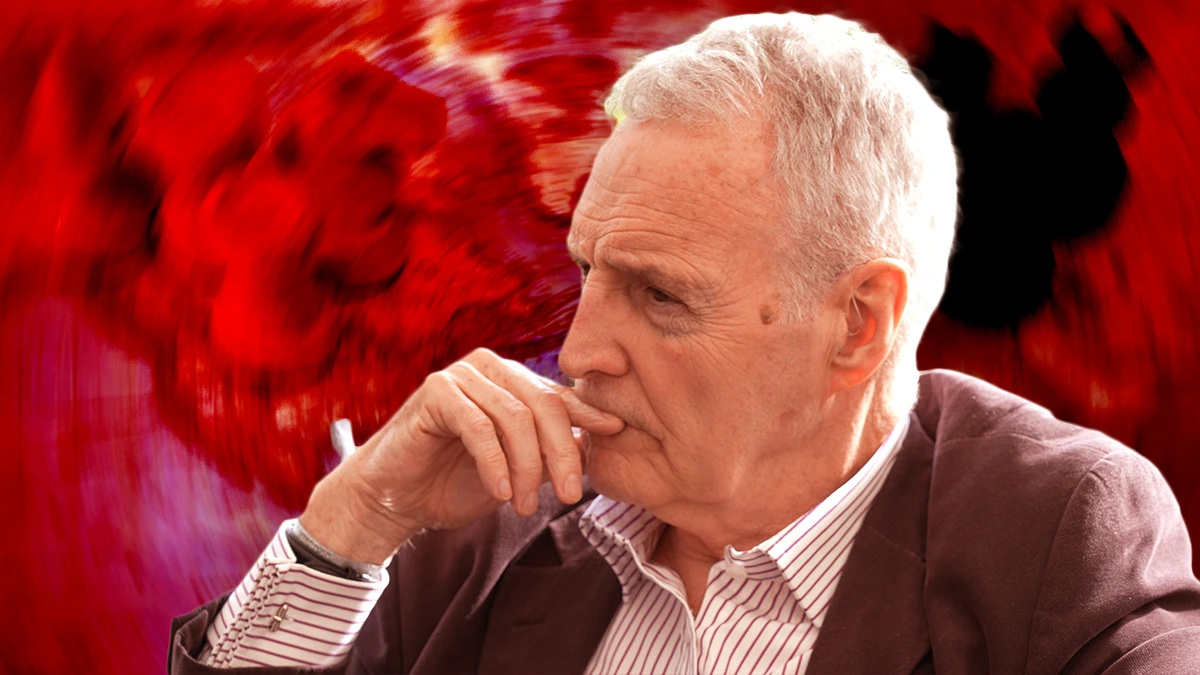After a hot-mic caught Chinese President Xi Jinping and Russian President Vladimir Putin discussing organ transplants and even immortality last week, the two leaders joined the long list, stretching back through history, of those in search of eternal life. An immortal dictator would have overcome their last political opponent – time itself. But author and former intelligence officer Andy Owen argues the denial of death can only lead to more suffering, the loss of meaning and the self, and the loss of all that is truly valuable in life. The quest for eternal life is a dangerous mistake.
Andy Owen will be in conversation with philosopher John Gray at the HowTheLightGetsIn festival this September 20-21, alongside hundreds of other world-leading thinkers, musicians, comedians, and more. Book your place now.
While new technologies designed to end life on a massive scale rolled past them, Chinese President Xi Jinping and Russian President Vladimir Putin were overheard in Beijing last week discussing organ transplants as a means of prolonging life. According to comments caught on a hot mic, Putin suggested eternal life could be achievable as a result of innovations in biotechnology. Xi's translator was heard saying in Russian: “In the past, it used to be rare for someone to be older than 70, and these days they say that at 70 one's still a child.” Putin’s Mandarin translator was heard translating: “With the development of biotechnology, human organs can be continuously transplanted, and people can live younger and younger, and even achieve immortality.”
SUGGESTED VIEWING Russia, China, and the future of world power With Michael Clarke
Putin and Xi have been in power for 25 and 13 years respectively. Neither has given any indication of a desire to step down. Both autocrats are 72 years old. They also share a belief in their respective destinies to lead their ancient civilisational powers to new glories and have tight control over the political apparatus in their countries to enable them to be around to do so. The one thing left for them to control is time itself, or, perhaps more feasibly, the aging process. They are not the first powerful leaders to search for eternal life.
___
Putin’s Mandarin translator was heard translating: “With the development of biotechnology, human organs can be continuously transplanted, and people can live younger and younger, and even achieve immortality.”
___
One of the earliest attempts at immortality we have a record of is by Gilgamesh, the Mesopotamian king of the city-state Uruk. The Epic of Gilgamesh, whose earliest components can be traced back to Sumerian poems from around 2100 BCE, details his search for everlasting life. After the death of his companion, Enkidu, Gilgamesh becomes determined to avoid the same fate. In the epic’s conclusion, after failing two tests to gain literal immortality, he realizes instead that mortals can attain immortality through lasting works of civilization and culture. This ancient insight is found in the later theories of the cultural anthropologist Ernest Becker, outlined in his 1973 book The Denial of Death. Becker believed that human activity is largely driven by unconscious efforts to deny the inevitability of our demise. We invest in activities, institutions, and belief systems that we think will allow us to transcend our brief time in the world.






















Join the conversation